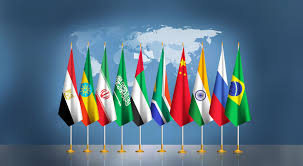
Breaking News
 Today's Technology: The Gateway to Psychotronic Weapons and the Reprogramming of Humanity
Today's Technology: The Gateway to Psychotronic Weapons and the Reprogramming of Humanity
 Netanyahu and Trump Host Libertarian Dinner!
Netanyahu and Trump Host Libertarian Dinner!
 American Doctor Organizations Are Such Shills for Big Pharma That They Cannot Be Trusted
American Doctor Organizations Are Such Shills for Big Pharma That They Cannot Be Trusted
 SCOTUS: Trump's DOGE Mass Federal Layoffs Can Resume
SCOTUS: Trump's DOGE Mass Federal Layoffs Can Resume
Top Tech News
 Insulator Becomes Conducting Semiconductor And Could Make Superelastic Silicone Solar Panels
Insulator Becomes Conducting Semiconductor And Could Make Superelastic Silicone Solar Panels
 Slate Truck's Under $20,000 Price Tag Just Became A Political Casualty
Slate Truck's Under $20,000 Price Tag Just Became A Political Casualty
 Wisdom Teeth Contain Unique Stem Cell That Can Form Cartilage, Neurons, and Heart Tissue
Wisdom Teeth Contain Unique Stem Cell That Can Form Cartilage, Neurons, and Heart Tissue
 Hay fever breakthrough: 'Molecular shield' blocks allergy trigger at the site
Hay fever breakthrough: 'Molecular shield' blocks allergy trigger at the site
 AI Getting Better at Medical Diagnosis
AI Getting Better at Medical Diagnosis
 Tesla Starting Integration of XAI Grok With Cars in Week or So
Tesla Starting Integration of XAI Grok With Cars in Week or So
 Bifacial Solar Panels: Everything You NEED to Know Before You Buy
Bifacial Solar Panels: Everything You NEED to Know Before You Buy
 INVASION of the TOXIC FOOD DYES:
INVASION of the TOXIC FOOD DYES:
 Let's Test a Mr Robot Attack on the New Thunderbird for Mobile
Let's Test a Mr Robot Attack on the New Thunderbird for Mobile
 Facial Recognition - Another Expanding Wolf in Sheep's Clothing Technology
Facial Recognition - Another Expanding Wolf in Sheep's Clothing Technology
BRICS at Rio de Janeiro: And What Next?

In the context of rising uncertainty, BRICS has further set up new models to change the economic architecture through South-South cooperation.
Brazilian President Luiz Inacio Lula da Silva hosted early July BRICS summit in Rio de Janeiro, capital city of Brazil. U.S. President Donald Trump's position on many sensitive issues has offered the association something of a dilemma. In a joint statement decried "the rise of unjustified unilateral protectionist measures" and the "indiscriminate raising" of tariffs. BRICS members all agree that "these tariffs are not productive," Ambassador Xolisa Mabhongo, South Africa's lead negotiator, or sherpa, said in an interview.
"They are not good for the world economy. They are not good for development."
President Luiz Inácio Lula da Silva has a raft of controversies with United States over the introduction of single BRICS currency, a suggestion he mooted in 2023. Besides that Brazil is currently facing steep economic challenges in the face of trade frictions with the United States. Majority of his citizens are facing deportation, it implies significant fallen in remittances and that would worsen social and financial standing of families across Brazil. It has had diverse criticisms, so are other new BRICS members with vastly different political and economic systems, and yet advocating for reshaping the global balance of power. Most of them are negotiating to be at discussion table, to straighten economic ties, with President Donald Trump.
On one hand, BRICS leaders seriously Trump's "indiscriminate" import tariffs and other trade policies. On the other hand, Trump has also warned that countries which sideline with the policies of the BRICS alliance against United States interests will be hit with an extra 10% tariffs.
These partner states have absolutely no decision-making authority as full members. The enlarged bloc is now characterized by emerging potential opportunities but deepening frictions. BRICS is increasingly experiencing complexities based on their individual priorities and geopolitical orientations. Yet the bloc, often denying the unpredictable stage of stark realities, continues boasting of coherence and systemic efforts toward creating a multipolarity.



